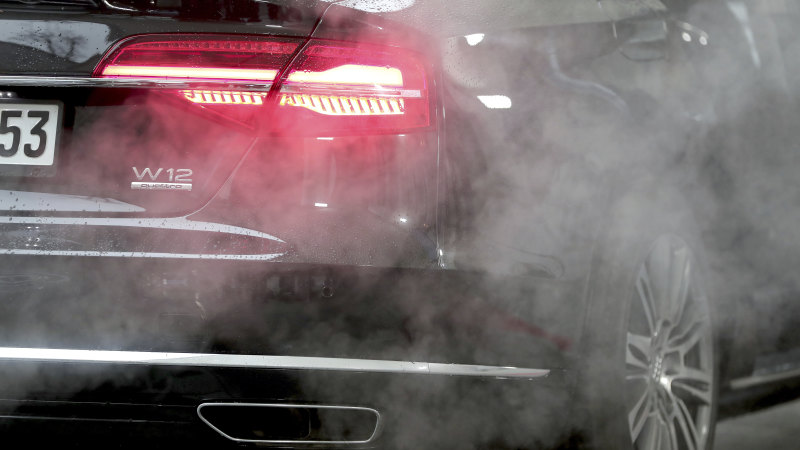Tighter noxious pollution limits coming for petrol, diesel cars

Save articles for later
Add articles to your saved list and come back to them any time.
Tougher noxious pollution limits are coming for petrol and diesel cars as the Albanese government prepares to impose standards on new cars from December 2025 it says will save lives and cut health costs.
The new rules will put more stringent limits on exhaust pollutants such as oxides of nitrogen and particulates, which can cause respiratory disease and cancer, from passenger and light commercial vehicles.
The Albanese government will tighten limits on noxious tailpipe emissions from passenger vehicles. Credit: AP
Carmakers will have to ensure their engines meet the new standards while fuel retailers will have to comply with tighter fuel quality rules that will also come into effect by the end of 2025.
The new noxious emissions standards, known as Euro 6, bring Australia into line with 80 per cent of the global car market, including the United States, Canada, the European Union, the United Kingdom, Japan, China and India.
Transport Department analysis in 2020 found that adopting these standards would save $6.4 billion in health costs by 2050. A University of Melbourne study found more than 11,000 Australians died prematurely every year from transport emissions, while 19,000 people were hospitalised for heart and lung issues.
“Tightening Australia’s noxious emissions standards will prevent deaths caused by toxic air pollution,” Transport Minister Catherine King said in a statement on Thursday.
Federal Chamber of Automotive Industries chief executive Tony Weber said car makers had called for more than a decade for the government to tighten noxious pollution and fuel standards.
“This is a necessary step to lower emissions from Australia’s light vehicle fleet and allow cleaner vehicles to be brought to Australia,” Weber said.
The new standards are separate from the government’s major transport reform initiative – a new fuel efficiency standard to encourage sales of electric vehicles.
Fuel efficiency standards limit average emissions, measured in grams of CO2 per kilometre, produced by the overall fleet of vehicles sold into the market by a manufacturer to encourage them to sell more EVs.
This reform has been delayed and is now expected to be released early next year.
Tightening limits on noxious pollution will also help reduce greenhouse gases because carmakers will have to ensure their vehicles are fitted with modern, efficient engines.
“These updates to our vehicle standards will see almost 18 million tonnes of greenhouse gas emissions cut from the transport sector by 2050 – equivalent to taking 280,000 cars off the road,” Climate Change and Energy Minister Chris Bowen said.
Cut through the noise of federal politics with news, views and expert analysis from Jacqueline Maley. Subscribers can sign up to our weekly Inside Politics newsletter here.
Most Viewed in Politics
From our partners
Source: Read Full Article
